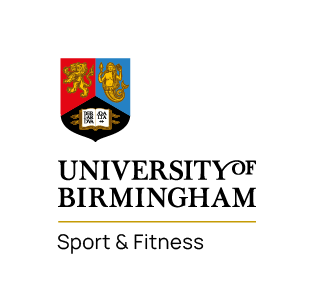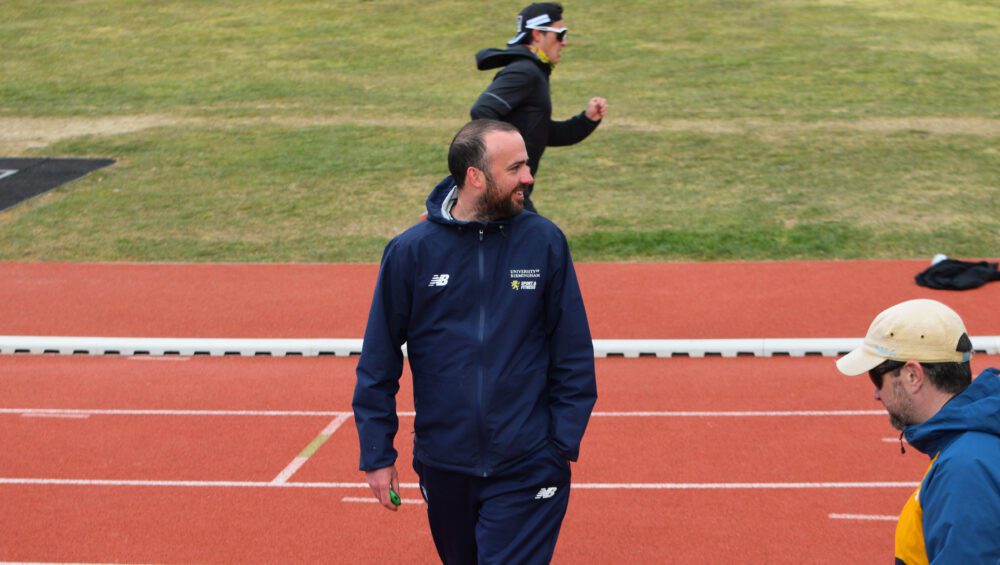From Student Athlete to Coach: Para Sport with Dean Miller
Dean Miller is our Endurance Manager and Coach for the Athletics club here at the University. To mark Disability History Month and International Day of Persons with Disabilities, we spoke to Dean about his journey as a former Para-athlete.
Once a student himself at the University of Birmingham and part of our Athletics club, Dean provides real insight into the opportunities that were made available to him through the University and beyond, and reflects on how the opportunities have changed over the years within the para-sport field.
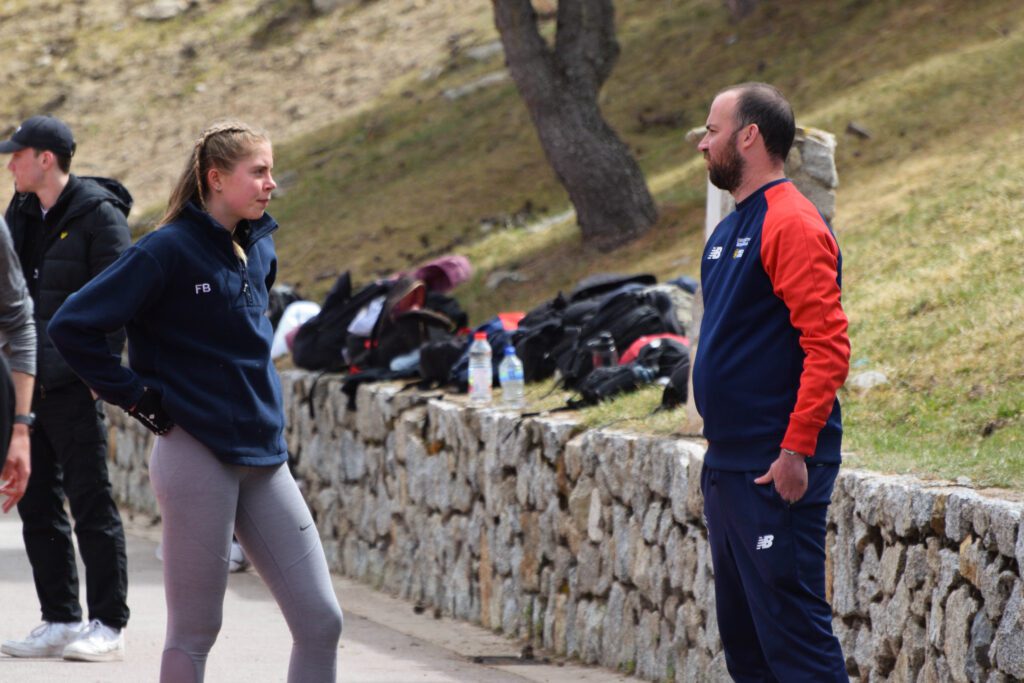
Credit: Zach Bridgelands
Q: For those less familiar, what is Para Sport?
‘It’s a fantastic spectrum of events, and actually it’s really hard to describe in just a few words – but it’s a huge thing, it’s a movement. It’s a sporting spectacle based around the Paralympics and Paralympic sport, which is born from the Olympic Games. But our sport is based around sport for disabled people at all different levels, ranging from participation level in clubs athletes, fitness and rehab, right the way through to the real elite and world class side of things at the Paralympic Games, who receive sponsorships and make a living from sport. I’m a massive advocate for Para Sport and we’re trying to do more for the University’.
Q: What opportunities were available to you that helped you get involved in para-athletics in the first place?
‘I actually think that my path was probably slightly different in that prior to joining the University of Birmingham as a student, I was already involved in non-para sport. My dad was an athletics coach. I think it was the Paralympic Games in Athens in 2004 that I happened to be watching, which would go on to be my classification, the 1500.
I said to my dad, those guys run like me – could I be on that stage? Then we started to explore how I could get into Para sport, and I was fortunate enough that I was a pretty good club athlete and with my Cerebral Palsy and the level of training, I was able to make some GB teams.
Off the back of that, my profile and where I was in the sport allowed me to come to University of Birmingham and be part of the scholarship program.’
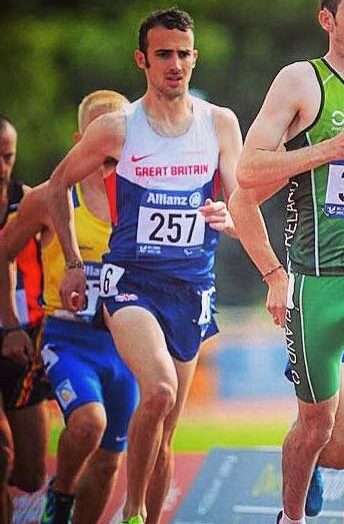
Q: What was your experience on the University of Birmingham Sport Scholarship Programme?
‘I was really well supported as a student athlete here; Birmingham has become my home. As I say, I’ve been here since 2007 now and they supported me well as a student athlete with a disability at a world class level.
I graduated in 2011 as an under-grad, but I’ve never left the place. They continued to support me through a graduate sports scholarship from 2011 to the end of my career in 2015, when I retired for injury. I’m now coaching the Universities athletics team here. I think in terms of opportunities the university is given me as someone within para sport, it’s kind of endless.
And from supporting me with the job, supporting my kind of my athletic skills as an athlete along with socially and educationally.’
Q: What is your fondest memory during your time competing?
‘It has to be the home games. I didn’t ever think I’d compete in front of 80,000 people, which I got to do.
The 2012 Paralympics is the biggest Paralympics ever. It’s the first Paralympic Games ever to be sold out. I remember speaking to one of my training partners at the time that summer and he said, I can’t get a ticket for your event. And I said, I’m sure we’ll be able to sort one out. And actually, at that point I think I realised I was going to be competing in front of a packed-out Olympic stadium.
I think I was one of only two Brits on that evening, so it was a pretty surreal moment. I always describe as I felt like I was running in a PlayStation game. It felt crazy and I probably never experienced anything like that again. For me, having that evening in the stadium to run a Paralympic final was really, really special.’
Q: How have the opportunities available to para-athletes improved since you first got involved, and what specifically does the University of Birmingham offer para-athletes, in terms of opportunities to participate, develop and compete?
‘It’s funny how opportunities available to us athletes have improved since I first got involved and what specifically was being invested in the athletes. I think the Paralympics and the Paralympic movement and power sport is always like a little sister or brother to the Olympic Games, so we always we are always playing catch-up in that sense.
But as I said, I’ve just spoke about the 2012 Games and what the games did for our sport in helping throw para sport into the mainstream channels, like marketing campaigns.
We’ve seen so much more opportunity, the Paralympic Games are growing. More sports are involved now, and there’s more money in the sport so our athletes can genuinely be world class in the classification in our event and go on top careers, which is something that maybe like 20 years ago and just before the London Games was much smaller.
And you’ve got household names. You’ve got you got your Jonnie Peacock, Johanna Cockcroft, they aren’t just world class athletes, but also celebrities and have made careers and are advocates for para sports. So, I think what the games in 2012 did was massive from a university perspective.’
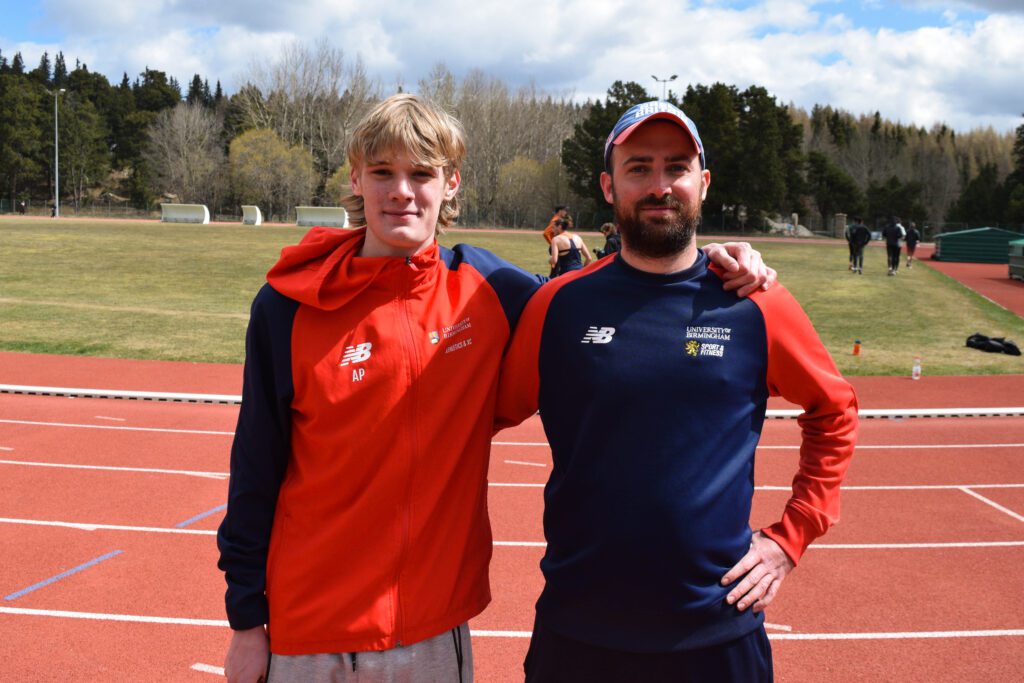
Credit: Zach Bridgelands
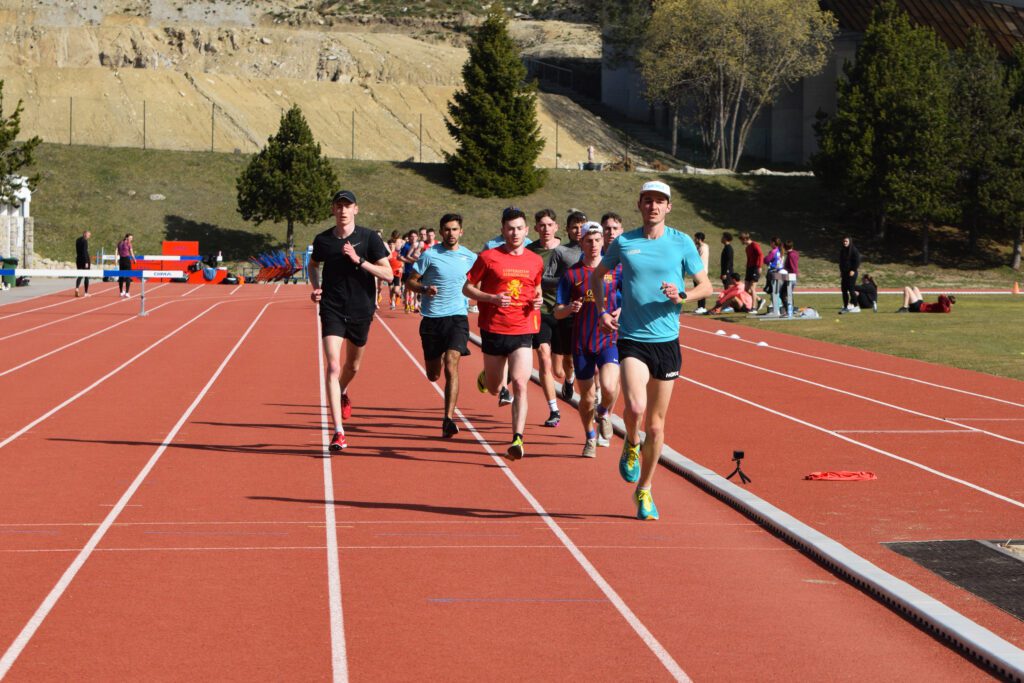
You can find out more about the Athletics club that Dean coaches using the link below.
